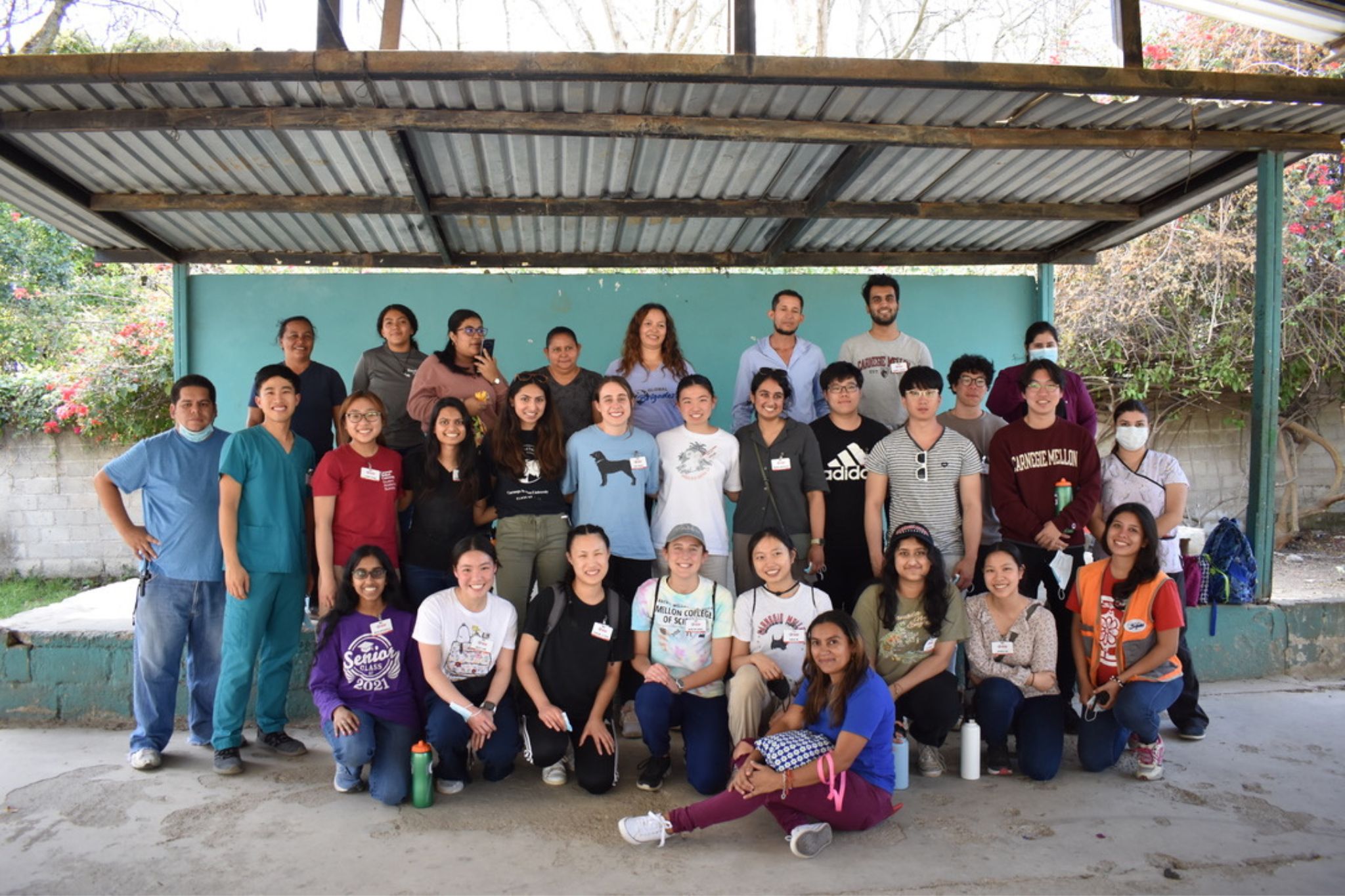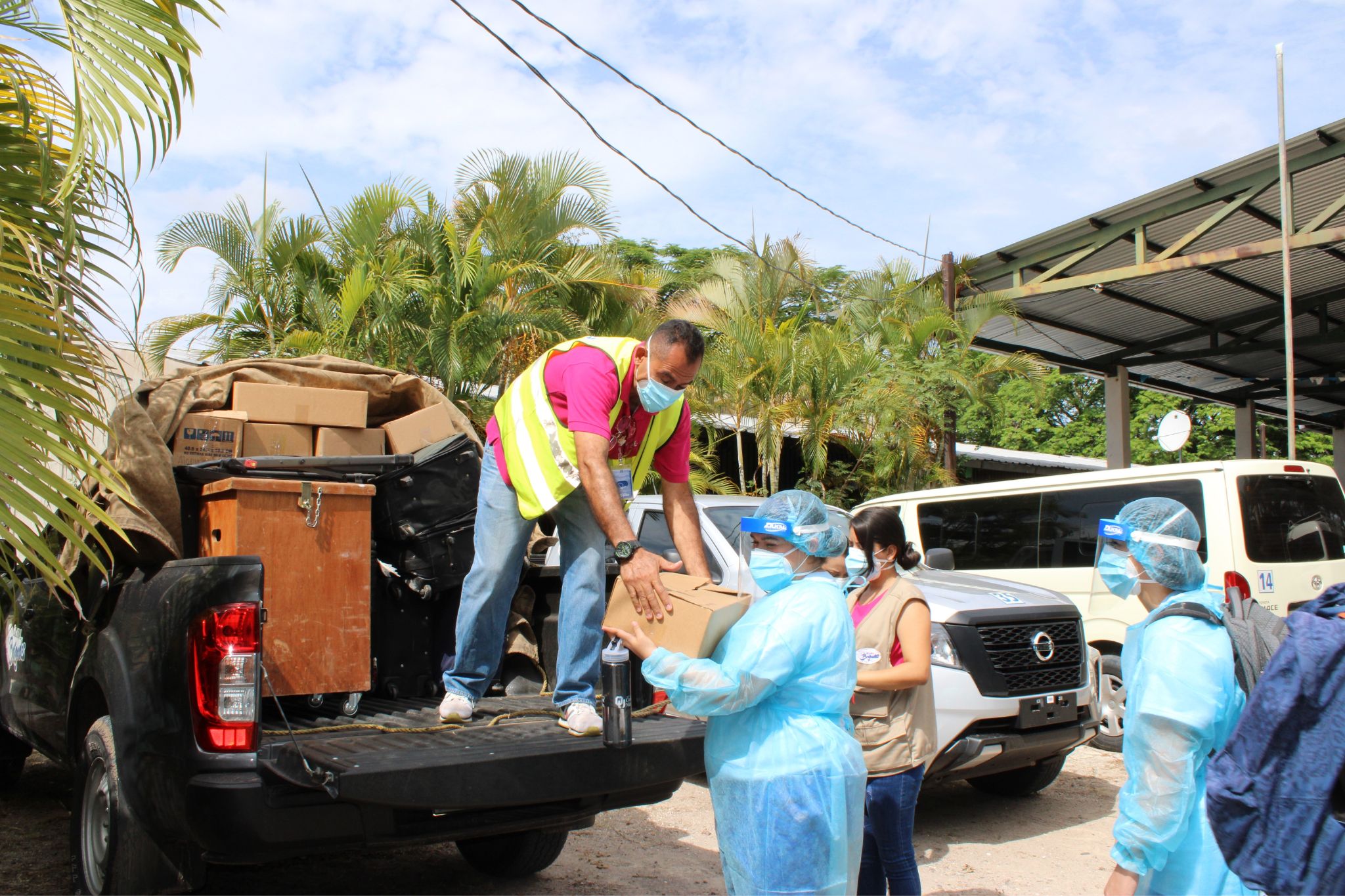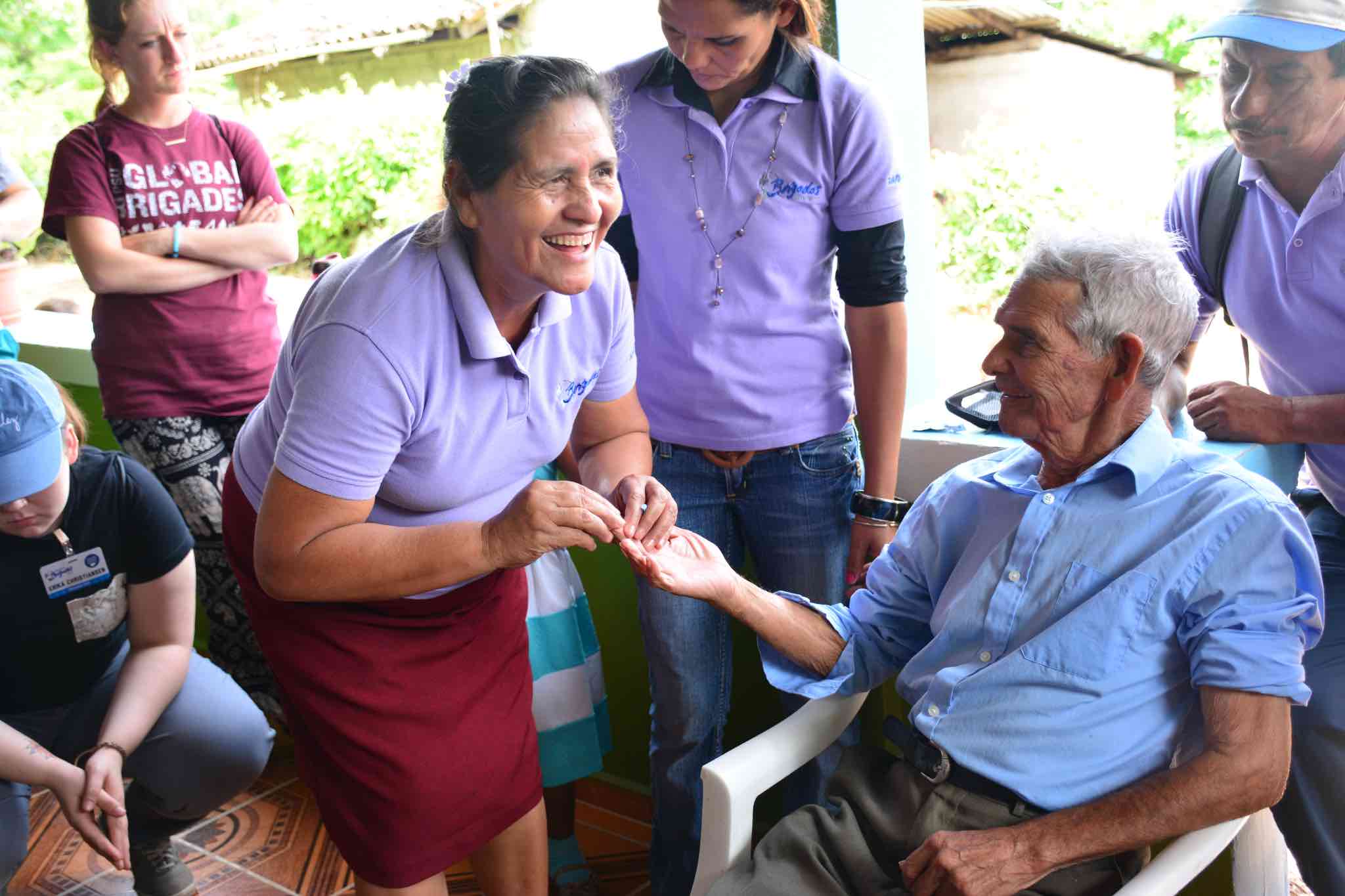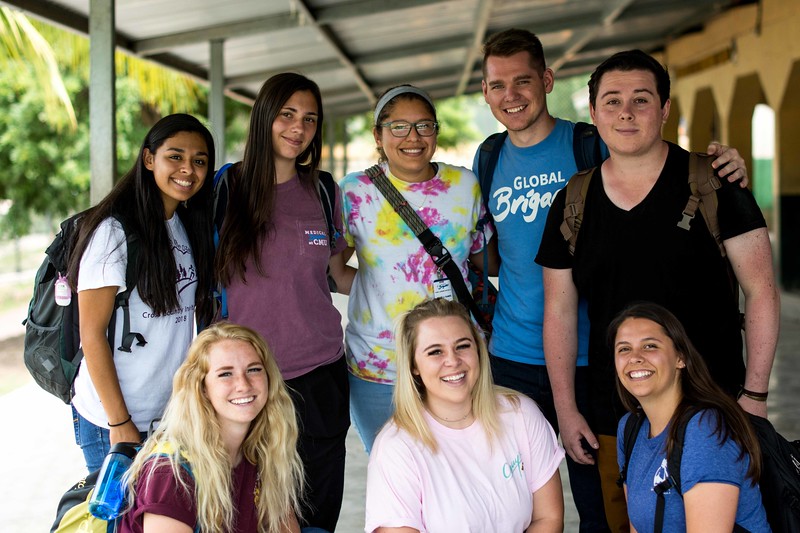Choosing a sustainable international volunteering opportunity comes with quite a few challenges. There are so many programs out there that don’t make their ethics and sustainability practices transparent for potential volunteers.
You’ll need to be very intentional to find a program that operates in a sustainable, holistic way, and that suits your needs and skill sets.
If you put in the legwork, making the right choice can have a profound impact on both the partner community and your own personal growth. Sustainable opportunities are out there, but you need to understand where to look and how to get involved once you find the best fit.
What Is Sustainable Volunteering?
Sustainable volunteering is ethical volunteering. It’s a type of volunteering that facilitates a lasting, sustainable impact on partner communities in a socially and environmentally responsible way.
Sustainable volunteer work is:
- Community-centered: Sustainable volunteerism prioritizes the needs and goals of local communities over the beliefs of their program leads.
- Skill-based: The best programs create opportunities based on volunteers’ skill sets and expertise in a way that benefits communities more effectively.
- Transparent: Responsible volunteer programs are accountable for the money they spend and how resources are allocated.
- Respectful of local cultures: Local customs, traditions, and belief systems are considered every step of the way in an ethical program.
- Environmentally responsible: Truly sustainable volunteerism attempts to limit the environmental footprint of that effort and minimize the use of local resources.
- Supportive to economic and community development: Volunteer programs should never take economic opportunities away from local communities.
- Adaptive and responsive to changing community needs: Sustainable volunteer programs monitor and assess their impact regularly and adapt as needed
- Go beyond your involvement: Have on-the-ground teams that are perpetuating the work when you are not there.
For pre-med students and volunteers interested in healthcare, ethical volunteer projects support more sustainable impacts on the health of that community.
Global Medical Brigades is the largest student-led movement for global health. Volunteer trips are about empowerment and sustainable development of communities in Ghana, Guatemala, and beyond rather than reliance on a volunteer organization.
10 Practical Steps to Choose the Right International Opportunity
The best volunteer abroad programs see the potential in developing countries for sustainable positive impacts. Organizations who develop these programs are concerned with year-round efforts that empower the partner communities they work with — not just short-term trips to look great on Instagram.
If you want to get involved in organizations that focus on sustainability over short-term volunteer travel, we have some advice on how to choose the right volunteer experience.
1. Be Honest With Yourself
Before assessing the motivations of volunteer placement organizations, think about your own reasons for going abroad. What are your personal goals for joining volunteer initiatives?
It’s important to look deep and be honest. Are you motivated by the social media attention of a traveling gap year (performative activism)? Or are you truly committed to the types of projects that support a local community’s health and economic development?
Volunteerism abroad can quickly fall into white saviorism territory if you’re not mindful of your personal motivations.
2. Assess Personal Limitations
Consider how much time you have to dedicate to a volunteer project abroad. If you only have a week, seek out short-term conservation projects or well-run healthcare initiatives that can seamlessly plug in compatible volunteers into a larger project.
Think about any personal financial commitments involved with volunteering abroad. Some programs come with donation requirements or program fees. Investigate any hidden costs of going abroad, and whether there are any available resources to help you make the leap.
If you find that you’re not able to go abroad for an in-country volunteer placement, there are other options available. A Medical TeleBrigade is a way to participate in global healthcare work virtually by shadowing doctors on telemedical visits.
3. Take Inventory of Your Skills and Interests
Many volunteer organizations treat placements more like internships. They seek out volunteers skilled in areas of need so both sides of the partnership benefit. If you’re interested in healthcare, seek out the types of volunteer work that focus on public health, like Global Medical Brigades.
If you’re interested in wildlife research, consider wildlife conservation or marine conservation efforts in places like South Africa, Costa Rica, and Thailand.
Volunteers interested in education should seek out non-profits that go beyond childcare and approach education abroad in a culturally sensitive way. Be especially wary of orphanages and programs that focus on teaching English without a high level of cultural competency.
4. Identify Target Regions
An interest in a particular region of the world is helpful in making a more personal connection to volunteerism abroad, but it’s not the most important thing. Your target regions should prioritize the need for your skills.
Pre-med students, for example, won’t be using their skills most efficiently on conservation trips to rescue sea turtles in Bali. Pre-med skills may be better suited supporting doctors at rural clinics in Africa and Latin America, instead.
Consider the safety and security of the destination, as well. The U.S. State Department about risk assessments are not the end all be all; look into what processes your organization has to keep volunteers safe and what their track record is in the country.
Do your research about things like international travel insurance, lodging, and transportation for every organization you’re interested in.
5. Research Reputable Organizations
Investigate the purpose, values, and track records of organizations that interest you. Read feedback and reviews online and go through posted financial statements. Consider volunteer application processes and what kinds of qualifications you need to meet to go abroad.
Reputable organizations will be transparent with any information you need to make your decision. The work they do is based on sustainable global citizenship and the needs identified by the communities they support.
One way to know if an international volunteering organization is committed to a model of global empowerment is to examine whether or not their goals align with the UN’s Sustainable Development Goals.
Global Brigades, for instance, follows a model we call The Empowered 100. The Empowered 100 is our initiative to uplift 100 rural communities, representing 65,000 individuals across Ghana, Honduras, Nicaragua, and Panama, out of poverty.
This is achieved through 3 pillars: healthcare, WASH, and economic growth, which align with several of the United Nations Sustainable Development goals. Our end aim is to devise a strategy to eradicate rural poverty within our generation.
6. Make a Short List
Once you have an idea of reputable volunteer groups that fit your interests, skills, and personal limitations, try to break that down into a short list of best fits. From there, you can dig a little deeper into the benefits of each remaining option.
You can become more discerning at this point. If you have language basics in one country over another, it may make sense to choose the path of least resistance. You’d also be a more valuable volunteer in that scenario.
Think about the little things that will make your experience more meaningful, including your level of comfort with your choice. Volunteering abroad can be challenging, but the process to get there shouldn’t feel as difficult as possible along the way.
7. Investigate the Level of Support and Training Provided
A sustainable international volunteering opportunity doesn’t just drop volunteers into placements without a high level of support. Volunteers should not be offering services they’re not licensed to provide in their home countries.
Training should come before placements. In sustainable global healthcare initiatives, licensed healthcare professionals work alongside volunteers in a collaborative way to offer a unique educational experience.
Ethical volunteer programs also support education around potential biases in targeted destinations. Global projects require a high level of cultural sensitivity for them to be successful long-term and connect with local communities on a deeper level.
Students who participate in our brigades must first join a Brigade Chapter at their university. While students eventually go on trips lasting between 7-9 days, the Brigade Chapter experience lasts most of a school year and involves extensive training before traveling.
8. Keep Asking Questions
Don’t be shy about asking things that may seem basic but would determine your quality of life abroad. Ask where you’ll live. Will you be with a host family or volunteer housing? If you have any personal needs or dietary restrictions, is it possible to have those met on a volunteer trip?
Ask about opportunities for long-term commitments if you’re interested in that kind of arrangement. Sustainable volunteer groups and non-governmental organizations (NGOs) should be transparent and forthcoming in their answers.
9. Weigh the Long-Term Impact on Career Goals
A good way to ensure your volunteer work abroad is meaningful once you’re back home is to consider how it affects your career prospects. Skill-based volunteer programs offer relevant work experience that can add heft to your resume.
Supported communities should always be the priority, but aligning your future goals with a volunteer experience results in a mutually beneficial partnership.
Choosing work abroad that feels good in the moment but doesn’t do anything for your career goals could set you back professionally. That’s not a selfish thing to consider. It’s more meaningful for everyone if your goals align on either side of an experience.
For pre-meds, there’s not a better volunteer opportunity than a Medical Brigade. You’ll learn about your partner community, get firsthand shadowing experience, and have an experience to discuss on your medical school application. Plus, if you choose to become a Chapter Leader, you’ll gain valuable leadership experience for your future medical career.
10. Connect With Former Volunteers
One of the best ways for potential volunteers to learn more about organizations they’re interested in is by talking with former volunteers for that group. They may be able to answer less tangible questions as you prepare for your time abroad.
It’s also a good networking tool. If you’re focused on healthcare-related opportunities, the connections you make while you’re there could be supportive as you seek work beyond your volunteer placement.
Narrowing Down Your Choices
Let’s get back to that short list. It can be challenging to narrow down your options when you’ve found a few organizations that fit your needs, align with your skills, and offer a sustainable volunteer experience.
Go back to your pros and cons lists if you’ve made them, or start a few to compare your options. Consider program duration, professional opportunities after your experience, and what you’ve heard from other volunteers.
In the end, it may just be about trusting your gut before making your final choice. You’ve done your due diligence and have been your own best resource. The most important part is making sure you’re informed along the way.
Change Is Human
There are a myriad of global volunteer opportunities out there for nearly every interest area and professional field. You can put your skills to good use abroad, especially if you’re committed to ongoing learning about your own motivations for those kinds of experiences.
Change is an important part of being human. It’s an important piece of global citizenship. While volunteering abroad may leave you forever changed, it’s also important to prepare for the cultural and emotional shifts required of international volunteering.
Go into an experience with open eyes and you’re sure to find a place for what you have to offer.
If you’re an aspiring medical professional and ready to join important, sustainable work being done on the ground, join a Medical Brigades Chapter. You can make a tangible impact on global health and support sustainable change in our partner communities.





